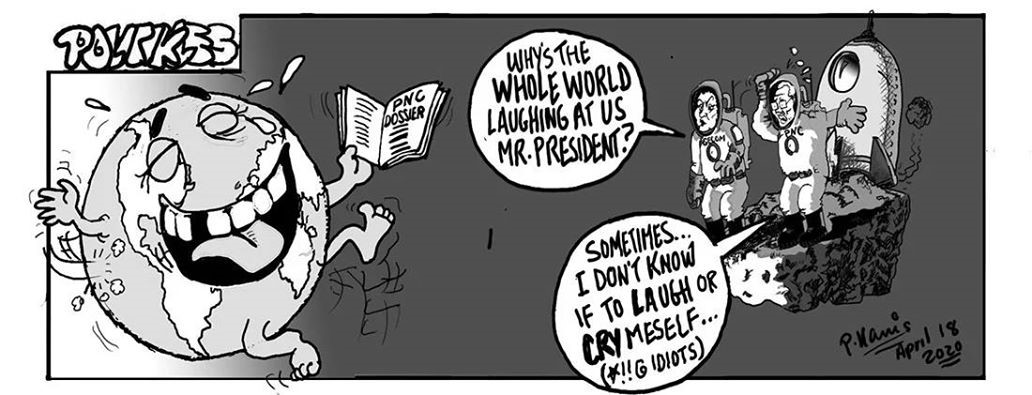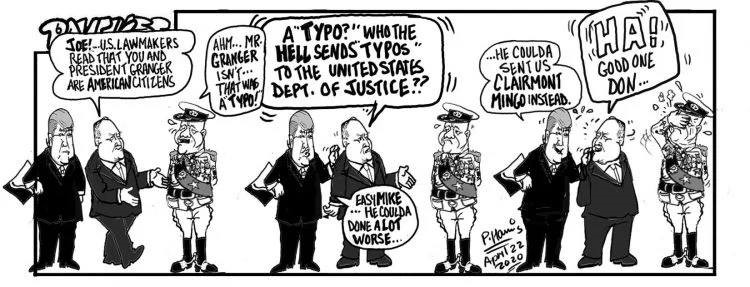By Indranie Deolall
Former American ambassador-at-large, professor Stephen Sestanovich can never forget his experiences at the Ukraine presidential elections in 2004.
Among observers from the New York-based Council on Foreign Relations, his delegation saw “the use of ink that disappeared in four minutes,” a practice that came to light when startled witnesses noticed clearly marked and submitted ballots in the transparent boxes had bizarrely become blank.
“We were also given a box of funny-looking purple pencils and told to leave them near voting booths in a (pro-opposition leader Viktor Yushchenko) neighbourhood,” he told the Sydney Morning Herald newspaper in an interview at the time.
“When we tried them, the ink disappeared after four or five minutes. Honestly. We thought that was funny,” he said. Sestanovich, a one-time special advisor to the United States (US) Secretary of State, has served, since 2001, as the professor of International Diplomacy at the School of International and Public Affairs, Columbia University.
Disappearing ink
Throngs of voters in the Eastern European country had turned out in opposition strongholds, hoping to oust the unpopular incumbent, Viktor Yanukovych. They collected their ballots, and the devices to mark the papers with, but minutes later the sheets suddenly erased, because the pencils and pens were filled with disappearing ink.
The Central Election Commission had declared tricky Yanukovych the “winner” with a margin of three percent, given that their all-too generous officials were reported to have simply allotted “entire piles of ballots” to him. Outraged opposition supporters filed a barrage of legal complaints countered by representatives from the other side, alleging fraud and other obvious irregularities, leading to the widely-condemned election eventually being rerun and Yanukovych losing to Yushchenko.
Major meltdowns
As in Guyana, international observers are still stunned and maybe somewhat amused by the ongoing vulgar antics on display, including at the Elections Commission, in the incredible aftermath of the March 2, 2020 polls, that indelibly featured crude pencil and pen-altered Statements of Polls, strange disappearing acts by key officials, and major meltdowns in mathematical methods and machinations that have meant protracted delays in a long-awaited credible recount.
These developments were preceded by the glaring inability of the incumbent government to determine without the expensive guidance of the Caribbean Court of Justice, the clear half of the 65-member parliament, and how a regime that had lost a no-confidence motion should proceed according to the country’s Constitution.

Dodgy dossier
Now has come the dreadful, dodgy dossier, as the all-too tired and vulnerable populace struggles to deal with the certain spread of the COVID-19 pandemic, in the absence of an authoritative, election result, a successor and always elusive honest administration, and a strong, visible head of state able to right the sinking ship in under 156 days.
Early this month, the American ambassador to Guyana, Sarah-Ann Lynch publicly defended her country’s reaction, acknowledging in a statement, that “quite properly, there has been a lot of attention by US diplomats to Guyana’s 2020 election day and events after it.” She stressed “the difference between meddling and practicing good diplomacy is that the latter involves sticking to bedrock principles of human rights, good governance, transparency and, whenever possible, underscoring the values that bind the country you represent to the country in which you serve.”
Democratic cacophony
The envoy noted, “some have criticized the US government for speaking out, suggesting we would do better to get our own house in order. To that I respond, democracy, or rule by the people, is almost always noisy.
The democratic cacophony is home to our competing values and political identities in the public square. At its heart, democracy is the expression of our freedom to be represented. As such, each adult citizen must have one vote and each vote must have one value.”
She pointed to Guyana’s January 2019 proclamation with 12 other Lima Group countries that the May 2018 Venezuelan election which gave a new presidential term to Nicolas Maduro, “lacked legitimacy” as it excluded the participation of all political actors, the presence of independent international observers, and failed to “comply with the necessary guarantees or international standards for a free, fair and transparent election.”
Guyana not Venezuela
Lynch said, “such statements are not foreign interference, they amount to good diplomacy by members of the hemisphere’s democratic club. My hope and expectation is that Guyana maintains its good standing as a member of this club by counting all the election day votes through a transparent and credible process. Guyana is certainly not Venezuela; let’s keep it that way.”
Sharing “an apparently well-kept secret” the diplomat concluded, “The United States government is entirely non-partisan about which party wins Guyana’s 2020 elections. The major parties – and the smaller ones too – all offer the opportunity to continue an excellent bilateral relationship based on a shared commitment to supporting improved governance, prosperity, and security in Guyana. Let’s get on with that important work.”
Disclosure and denial
In an astonishing disclosure, the Ministry of the Presidency (MOP) denied that the government of Guyana or president David Granger had hired the US lobbying arm JJ&B LLC, to change the widespread negative narrative surrounding the elections, contrary to several statements made by its powerful director-general Joseph Harmon, listed as the point of contact by the firm.
The lobbying firm said it had received an April retainer of US$40,000 to influence figures of the executive and legislative branches of the US government to seek resolution of disputes regarding Guyana’s recent presidential election and to improve relations between the two countries. The MOP denied the dossier’s claim that president Granger is a US citizen.

Stage a “COUP”
Among other accusations, the dossier charged that the PPP/C, which months ago renewed its pact with the pricey Mercury lobbying group, is seeking to stage “a coup” to unseat the legitimate Granger-led government, arguing that such an administration would be bad for US interests as opposed to the “pro-American” APNU+AFC, since a PPP/C government with its Marxist background and close leadership links to Venezuela would also increase the influence of Russia and China within this hemisphere.
Given the absolute ridicule that has greeted daring details of the dossier, the APNU/AFC “incensed” financing donors should demand a full refund, and if that fails several containers of purple pens.
ID dwells on the lessons from Ukraine’s 2004-flawed-poll transcripts that went like this: “Official 1: ‘Why is the voting rate in the Donetsk and Dnepropetrovsk regions so low?’ Official 2: ‘We’re increasing it now.’ Official 1: ‘Don’t drag things out.’”





